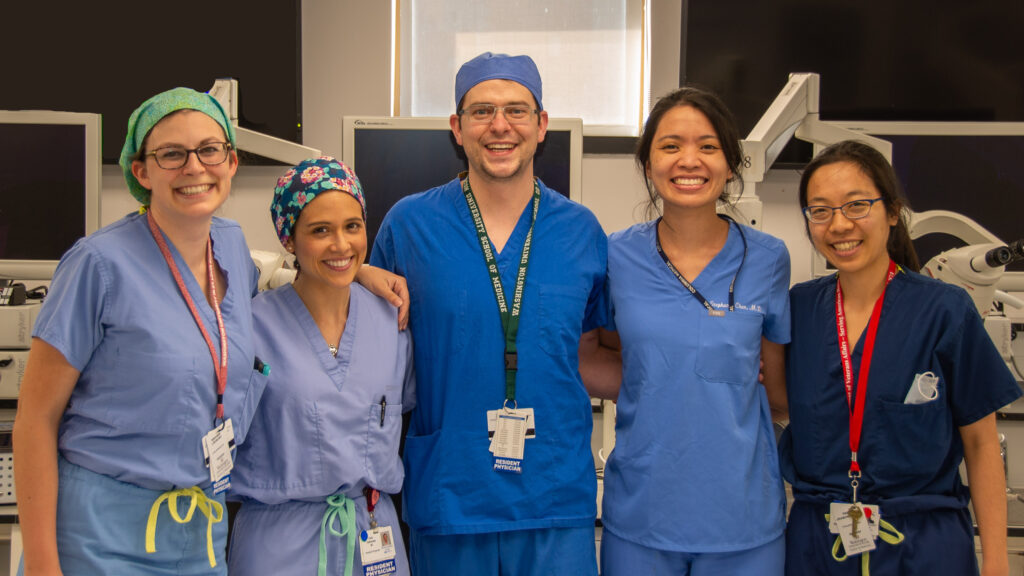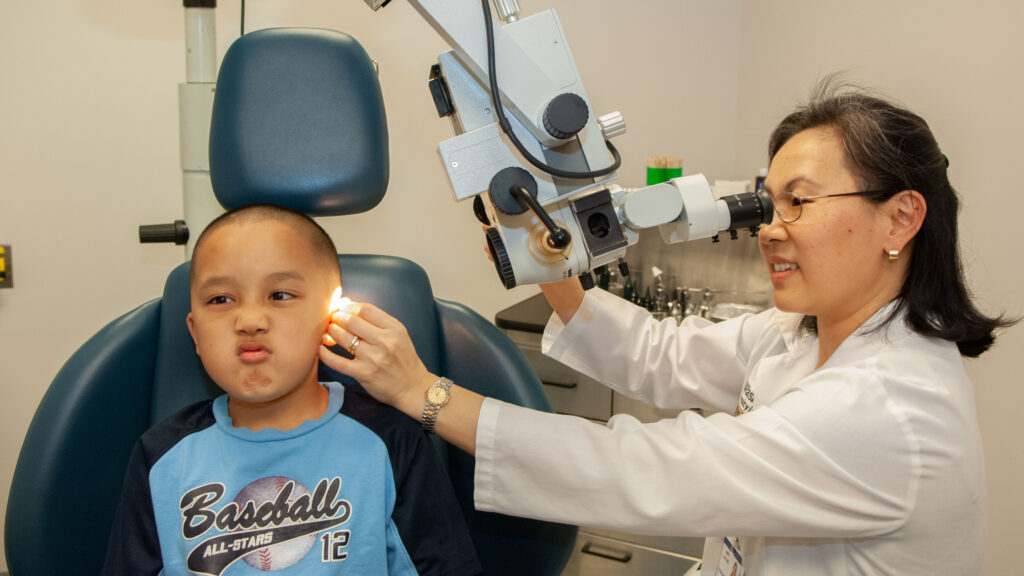As our residents rotate through various ENT specialties, they learn a variety of specialized tests and procedures. They also learn the fine art of establishing communication and trust with their patients. Perhaps nowhere is this more important than on their pediatric rotations through St. Louis Children’s Hospital.
Children’s Hospital is a special place. From the parking garage to the exam room, the facilities were designed with kids in mind. The first step to engage pediatric patients is to create a quiet, safe, kid-friendly environment. That includes the manner in which residents interact with these special patients.
Being open and honest about what is going on and what will happen is key to increasing cooperation and reducing anxiety for our youngest patients and their families. Use of age-appropriate language, playing with toys, and offering comfort to children come naturally to many residents.

But beyond the fun, resident training in otolaryngology focuses on patient evaluation, perioperative care and the development of surgical skills. Our residents rotate through the pediatric service during their first, second and fourth clinical years.
The program is structured to allow for growth in both surgical skills and clinical responsibilities:
- The PGY1 year includes a focus on clinical experience to learn about diagnosing and managing the most common problems seen in ENT. Residents also work with the hospital team to become adept at perioperative management of the pediatric patient, including post-operative care, fluid and electrolyte management, pain control and wound care.
- PGY2 residents become more adept at patient evaluation and development of appropriate management plans. They gain experience and proficiency with using the surgical microscope to place ear tubes and perform adenoidectomy, tonsillectomy and endoscopic procedures. They also assist with other head and neck procedures.
- In their final rotation, PGY4 residents take primary responsibility for the consultation service, perform as primary surgeon for procedures requiring intermediate skills, assist with procedures requiring more advanced skills, and support the multidisciplinary team craniofacial clinic.
Being around children is fun, according to PGY4 resident, Carla Valenzuela, MD, who says they get to see the nicest kids and some of the most unusual cases at St. Louis Children’s Hospital.
“Children’s Hospital is a unique place where we get exposed to the complex congenital disorders that we read about in textbooks,” she says. “Those cases wouldn’t be available at many institutions.”
Other perks to the pediatric rotation are not lost on our residents, including the colorful Children’s Hospital cafeteria. “Highest value pancakes in the Central West End,” says David Lee, PGY2 resident currently on pediatric rotation. “Ninety-seven cents for buttery fluffy goodness!”
